The jubilant applause that the Palestine Youth Orchestra (PYO) receives after each performance has been incredible. Standing ovations have become the norm at every European concert hall. Admiration of the orchestra’s abilities and uniqueness is always apparent in the eyes of the audiences and in the comments heard as they leave the performance venues in awe. Since its inception in 2004, the PYO has toured many European countries, changing audience perceptions of Palestine and Palestinians. The orchestra’s music always includes works by Palestinian and Arab contemporary composers, keeping music lovers worldwide interested in its unique signature sound. The 80-strong PYO is probably the most significant Palestinian ensemble to tour the world, and its impact has been tremendous. The influence of Palestinian musicians on the world music scene, however, goes back many years before the PYO’s inception.


After the Nakba, many Palestinian musicians who fled their homeland took refuge in adjacent Arab countries and played a vital role in their musical development. Palestinians dominated the Jordanian musical scene, including radio and TV. Yousef Khasho of Jerusalem and Amin Nasser of Birzeit were instrumental in creating the Jordanian National Conservatory of Music in Amman in the 1960s. A later generation of music professionals and amateurs also played a crucial role in the National Conservatory’s reestablishment in the late 1980s. Included in their ranks were Samia Ghannoum, Kareem Bawab, and Yusra Arnita. Salvador and Yusra Arnita, as a couple, had made Lebanon their new home after the Nakba, and Salvador became a significant figure in the music department of the American University of Beirut. Mohammad Ghazi of Beit Dajan was entrusted by the Rahbani Brothers to teach Fairuz the muwashahat singing style, which had a crucial impact on her vocal development. The Sahab brothers from Jaffa became cultural figures in Lebanon and the Arab world. Most significant musically was probably conductor Selim Sahab who still leads one of the most important Arab orchestras in Egypt and is very influential in Cairo’s musical circles. It is impossible to talk about the Iraqi music scene without mentioning Rawhi Al-Khammash from Nablus. Al-Khammash was considered a pillar in the development of Baghdad’s academic musical life and drew great respect from his Iraqi counterparts.
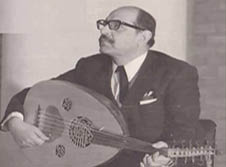
Hussein Nazek from Jerusalem established his musical career in Damascus. His hundreds of compositions influenced Syrians and the whole Arab world as he wrote many popular music themes for the famous Arab drama series and led important musical ensembles.
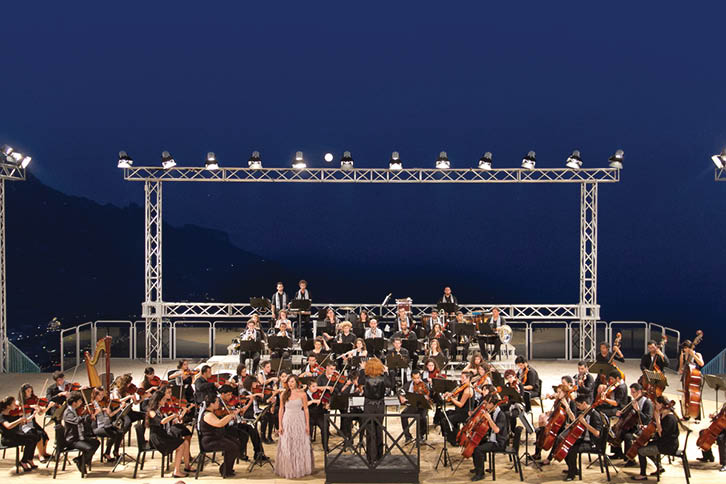
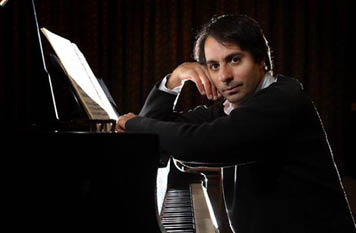
Palestinians also made significant musical contributions to the world of classical music at large. Habib Kayaleh’s violin academy in Switzerland is a world-class institute that specializes in nurturing young talent from around the world. His contributions as a leading world figure in violin pedagogy have earned him a place among the world’s great violin teachers. His daughter Laurence is a star violinist and now contributes to the Canadian scene as a violin professor at various Canadian Universities. Habib Touma, an influential musician originally from Haifa who lived most of his life in Germany, made significant contributions to the world of ethnomusicology. His book, The Music of the Arabs, was translated into various languages and has become an imperative reference.
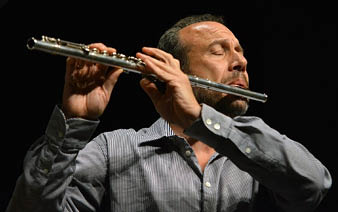
Various Palestinian composers residing in Europe made their impact on the genre of contemporary art music. The most famous are Patrick Lama, Mounir Anastas, and Samir Odeh-Tamimi whose compositions are featured in European contemporary art circles. Issa Boulos of Ramallah also has quite a presence in America. The Chicago Symphony Orchestra, as well as the PYO, commissioned Boulos to write for them. Flutist Wissam Boustany, son of the late Nadia Saba of Jerusalem, made his contribution as a performer and educator at Manchester’s Royal Northern College of Music and Trinity Laban Conservatory in the United Kingdom. He is one of the world’s leading contemporary flutists. Alexander Suleiman, whose ancestry goes back to Hebron, is a world-class cellist and teacher. After spending some time in California, his latest contribution has been as a cello professor at the China Conservatory of Music in Beijing. Saleem Abboud Ashkar from Nazareth has become a prominent touring pianist, earning great acclaim for his interpretation of Beethoven’s works. Another brilliant pianist is Karim Said, making his mark in both Europe and Jordan. He is an associate of the Royal Academy of Music in London and conducts the Jordanian Chamber Orchestra. Jenna Barghouti of Ramallah has become a topnotch violinist, performing with the Dallas Symphony Orchestra after several years with the Houston Symphony. Her Azalea String Quartet has received prestigious commendations.
Palestinians are also active participants on the world stage of opera and include Dima Bawab, Mariam Tamari, Marwan Shamieh, and Nemeh Azzam, all contributing with their unique voices to opera worldwide and taking lead roles in international productions.
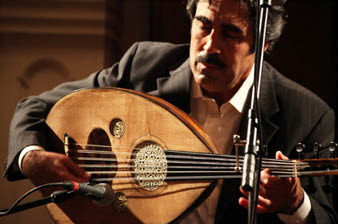
Palestinians are equally engaged in creating film music. Most important is John Bisharat, with Jerusalem ancestry. He has been writing film scores for many years now and also conducts several important orchestras in California and elsewhere. His brother Charlie is a versatile violinist who is active mostly on the west coast of the United States. Another promising film-music composer is young Faris Badarneh from Haifa. The PYO performed works of both Bisharat and Badarneh and received positive reviews.
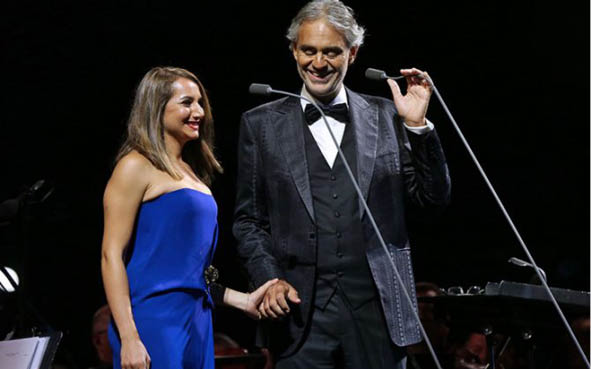
While many Palestinian musicians are engulfed in classical Western music and made their mark in that world, others took their Arabic music with them and enriched the world music scene with their authenticity and diversity. The most prominent of these musicians is undoubtedly Simon Shaheen of Tarshiha. His musical contribution, mostly in the United States, where he resides, has been tremendous. He is probably one of the most significant Arabic music figures in North America, bringing Arabic music closer to Western audiences through his authenticity, on the one hand, and his fusion with other music genres, on the other. Shaheen’s annual music retreat attracts eager learners from all over the world. No less prominent is the world-famous Trio Joubran. The three oudist brothers from Nazareth, Samir, Wisam, and Adnan, alongside their percussionist Youssef Hbeish, have been among the most influential Palestinian performers worldwide, changing the world’s perception of Arabic instrumental music. Hbeish is also part of Duo Sabeel with brilliant oudist Ahmad Al-Khatib. They both have inspired scores of young musicians around the world with their virtuosic performances. Another influential percussionist is Nasser Salameh. Residing in Jordan, he performs extensively with many international musicians and has become a famous name in hand percussion.
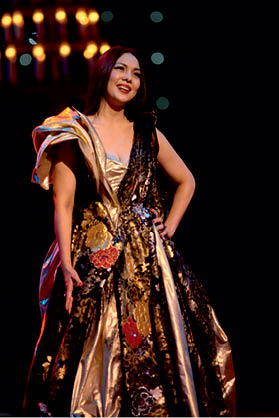
Wafa Al-Zaghal and Lamees Audeh are a couple who make a lot of noise with their music school in Mississauga in the Toronto area of Canada. Their annual music festival and their Canadian Arab orchestra add a lot of diversity to the country’s musical landscape. Leading a similar ensemble is Wanees Zarour from Ramallah. Zarour conducts the Middle East Music Ensemble of the University of Chicago and lectures in its music department. Nai Barghouti’s vocal performances continue to attract much international interest. Her exclusive command of Arabic and jazz vocal techniques mesmerizes audiences worldwide as they listen to the new sounds that emerge from this promising young Palestinian who might eventually create a new and unique genre of singing. Another vital contributor to the world music scene is Kamilya Jubran, who has experimented with new Arabic singing, fusing it with electronic music.
The PYO has been a nurturing ground for a number of young musicians, many of whom have gone on to solo performance careers, making their impact on the world music scene. In addition to some of the musicians mentioned above, Naseem Alatrash is another example of remarkable instrumentalists. His virtuosity on the cello and unique Arab-style improvisations attract a lot of attention in the United States. Similarly, clarinetist Mohamed Najem’s unique sound enchants music lovers in France. Also active in the French music scene are Lamar Elias and Mirna Abu Zuluf. Although still students, they have been performing extensively in southern France where they reside.
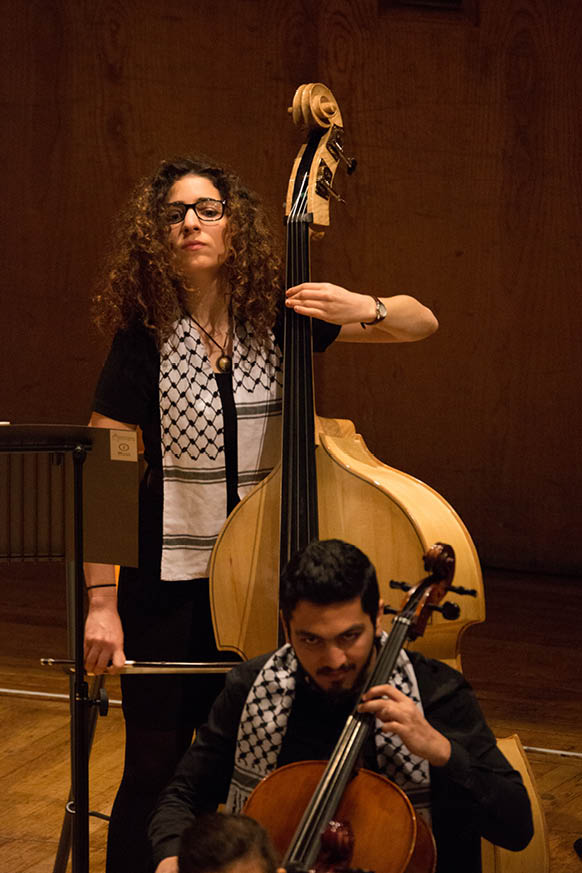
Many more Palestinian musicians have made their mark globally, but space limitations prevent mentioning them. Many more second- and third-generation immigrant Palestinian musicians are unknown to us and are probably making their mark somewhere in the world music scene. The PYO will continue to search for these musicians and encourage them to engage with their roots.


